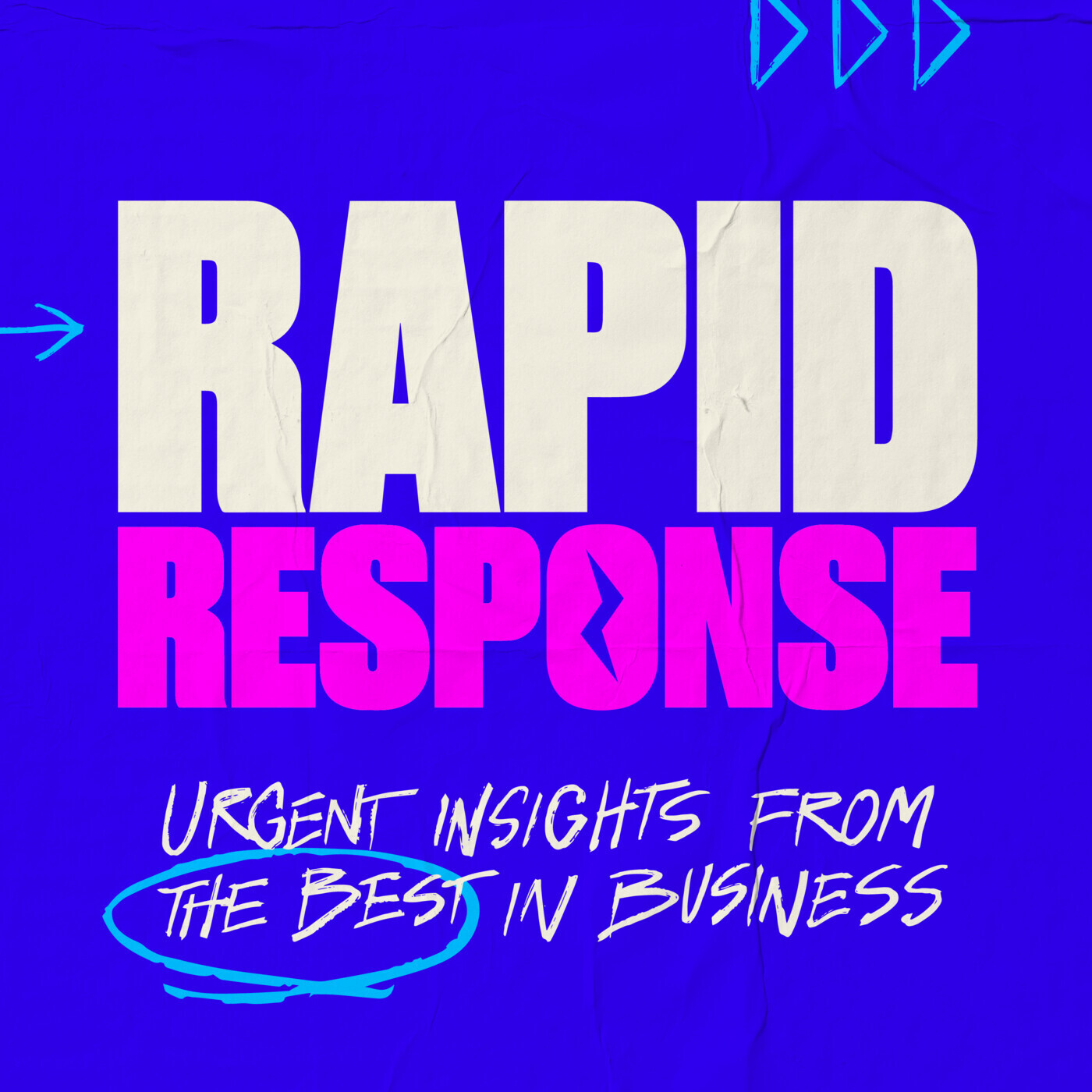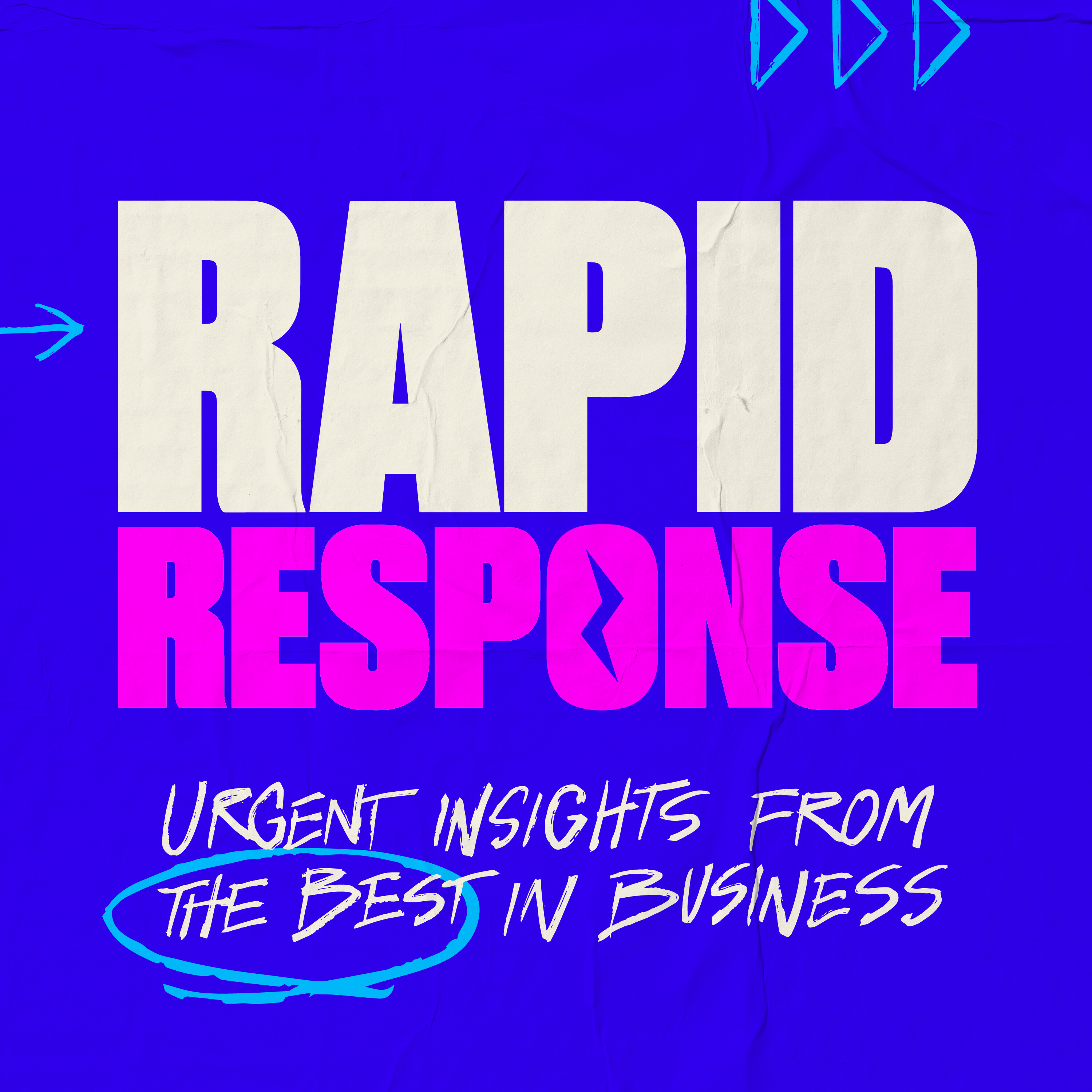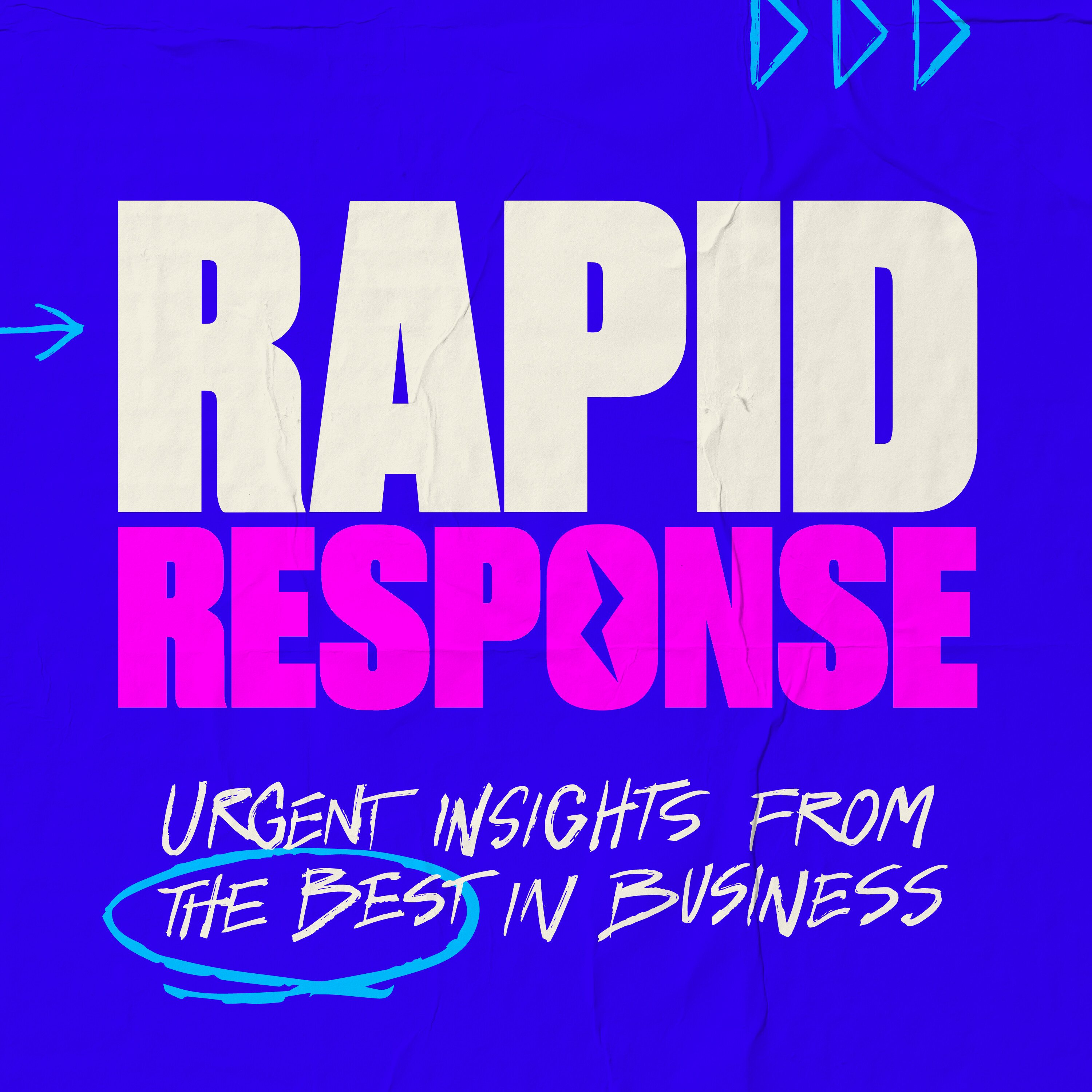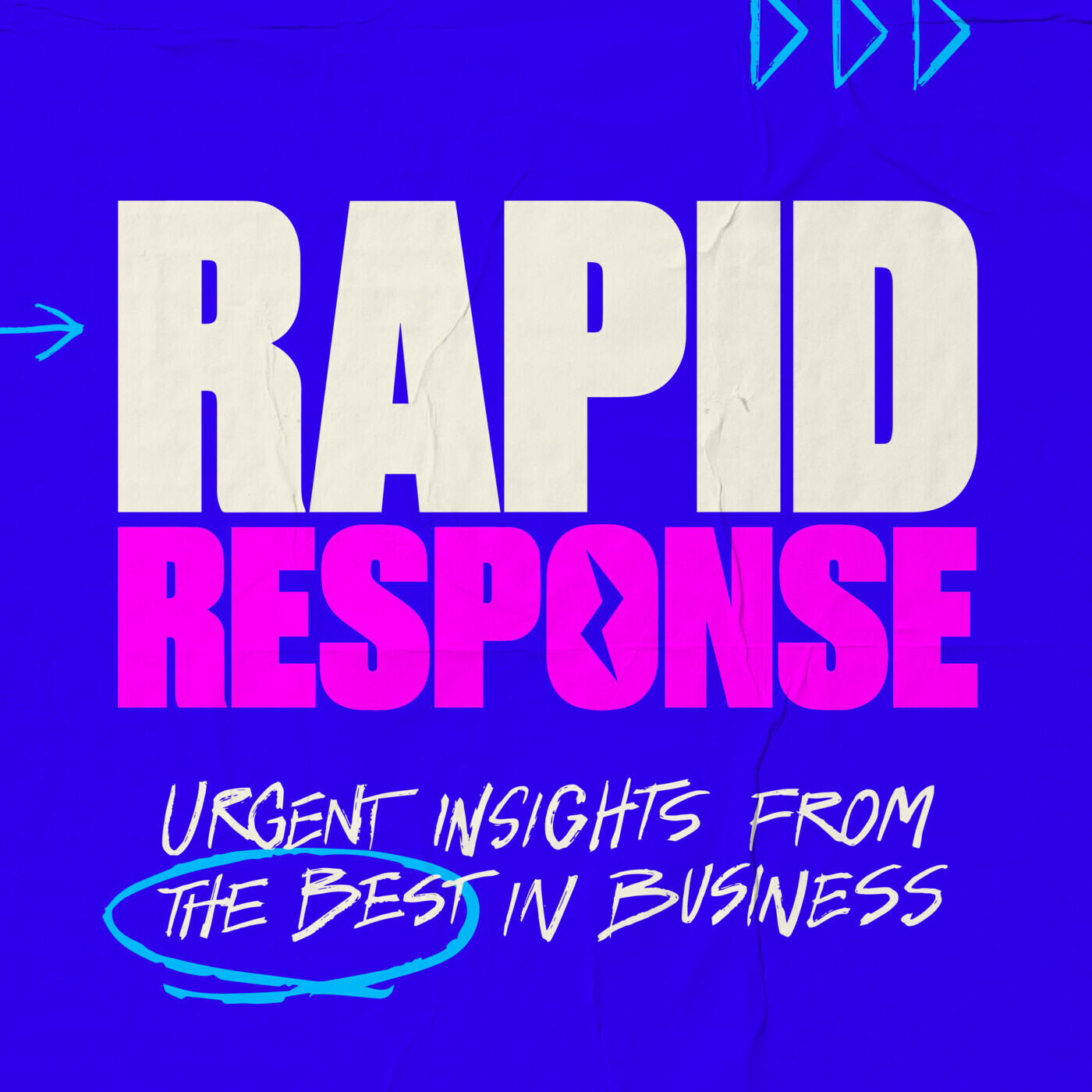
November 8, 2024 • 31min
Rapid Response: Reid Hoffman on Trump's election and what's next
Masters of Scale
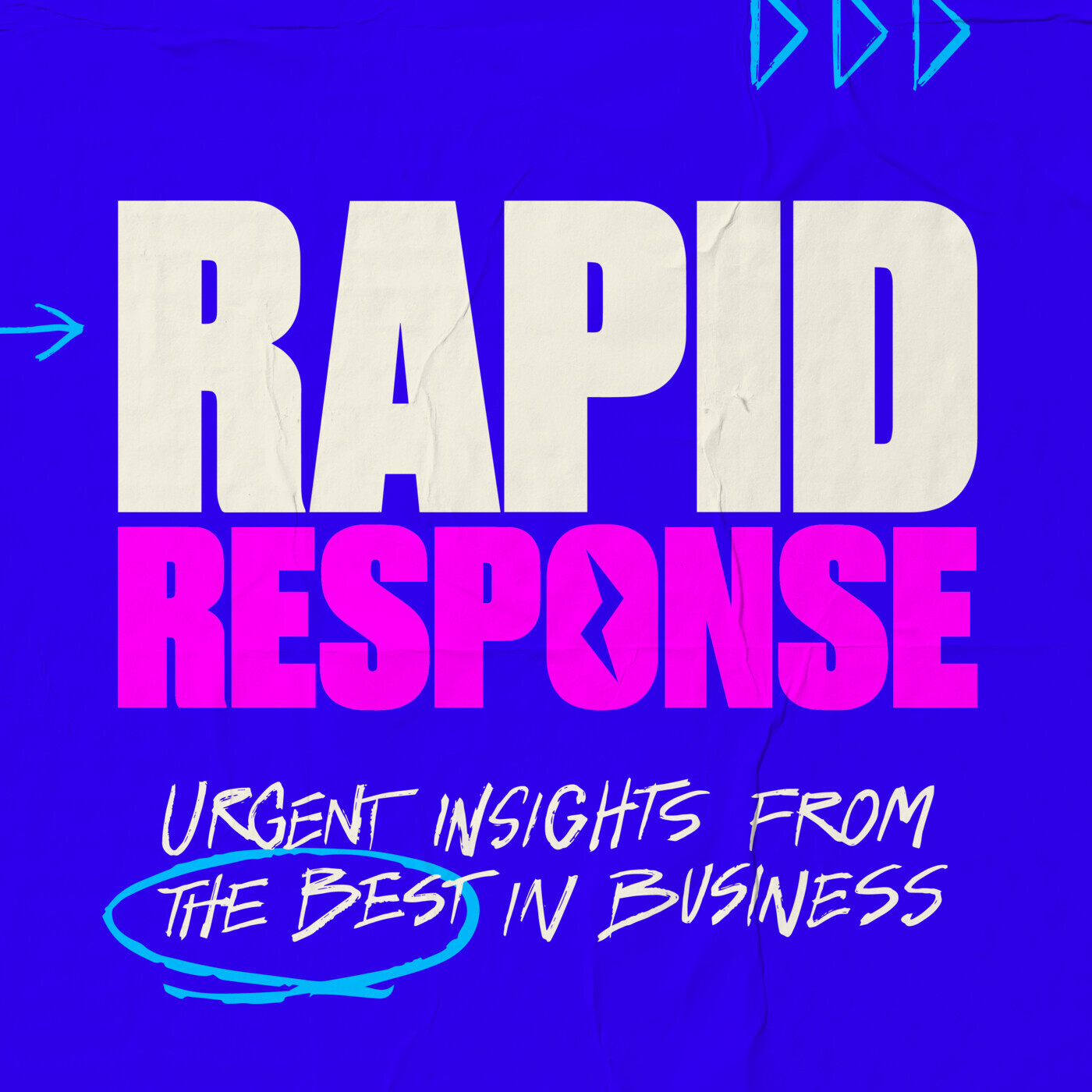
Key Takeaways
- Post-Election Perspective: Despite being a vocal critic and major donor opposing Trump, Reid Hoffman is now focused on hoping his fears about Trump were wrong and working to drive US prosperity regardless of political leadership
- Business Focus: Hoffman plans to return his focus to building companies, investing, and advancing technology like AI rather than remaining heavily involved in politics
- Economic Reality vs Perception: There's a disconnect between actual economic indicators and voter sentiment, partly due to inflation impacts and lack of understanding of global economic context
- Silicon Valley Future: Two potential scenarios under Trump:
- Hope: Continued thriving of tech sector as America's strongest industrial complex
- Fear: Shift toward "crony capitalism" that could reduce economic outcomes
- Business Leadership Role: Business leaders should:
- Prepare for potential volatility
- Focus on building positive outcomes rather than opposition
- Speak up when needed while avoiding purely negative criticism
- Understand businesses must adapt to political environments rather than act as bulwarks against them
Introduction
In this episode recorded shortly after Donald Trump's 2024 election victory, Reid Hoffman, co-founder of LinkedIn and partner at Greylock, discusses his reaction to the election results and thoughts on the path forward for business, technology and the country. As someone who actively opposed Trump's candidacy, Hoffman shares his perspective on how to constructively move forward despite political differences.
Topics Discussed
Initial Reaction to Election Results (02:23)
Hoffman acknowledges hoping his previous concerns about Trump prove wrong, while maintaining his commitment to driving positive outcomes. He notes that some argued Trump's campaign rhetoric was more extreme than how he would actually govern.
- Key quote: "Obviously I feared and fear that they were wrong, but now obviously today I'm hoping that they are right."
- Market reaction: Stock market gains reflect short-term judgments about:
- Potential tax rates
- Stimulus packages
- Regulatory environment
Economic Perception vs Reality (05:53)
Discussion explores why voters feel economic dissatisfaction despite relatively strong fundamental indicators.
- Key factors:
- Limited public understanding of stimulus impacts and global context
- Inflation's tangible impact on daily expenses
- Lack of clear pro-business Democratic messaging
- "Most Americans don't really realize the impact of what all this kind of stimulus and Covid means...they don't understand that when I get a free hamburger today, that makes sense it's gonna cost me something tomorrow."
Future Focus and Role (10:01)
Hoffman outlines his planned shift back to his core strengths in business and technology.
- Primary focus areas:
- Building companies
- Investing in new ventures
- Advancing AI capabilities
- Creating platforms that expand prosperity
- Upcoming work: New book "Super Agency" about AI's potential to increase human capability
Silicon Valley's Future Under Trump (13:40)
Analysis of potential scenarios for tech sector under Trump administration.
- Positive scenario:
- Continued support for innovation and growth
- Maintenance of strong export industries
- Broad-based economic benefits
- Negative scenario:
- Shift toward crony capitalism
- Reduced economic outcomes
- Disruption of export revenues
Business Strategy Considerations (17:09)
Advice for business leaders navigating uncertain political environment.
- Key recommendations:
- Plan for potential volatility
- Prepare multiple contingency plans
- Watch for signs of policy direction
- Monitor potential tariff impacts
AI Policy Outlook (18:34)
Discussion of potential Trump administration approach to AI regulation and development.
- Key observations:
- Campaign rhetoric may not translate to policy changes
- Existing executive orders likely to remain largely intact
- Important to maintain broad industry enablement
Business Leadership in Politics (20:15)
Exploration of appropriate role for business leaders in political discourse.
- Key principles:
- Importance of constructive dialogue
- Need to bridge divisions
- Focus on collective success
- Speaking up when warranted while avoiding purely negative opposition
- "We're in this boat together. Let's try to make this boat work as best as possible."
Business Adaptation to Political Environment (27:14)
Analysis of how businesses respond to political change.
- Key characteristics of business adaptation:
- Responsive to customer demands
- Adaptive to employee culture
- Balanced approach to shareholder interests
- Compliance with regulatory requirements
- "Businesses are not bulwarks against antagonistic political pressure...they're adaptive."
Optimism and Path Forward (30:01)
Concluding thoughts on maintaining constructive approach despite political differences.
- Key principles:
- Focus on building positive outcomes
- Maintain courage to speak up when needed
- Recognize business role in prosperity
- Build constructively regardless of circumstances
- "Optimists are what build the world...how do you build positively is in each case the question you need to be asking."
Conclusion
Despite his previous opposition to Trump, Reid Hoffman emphasizes the importance of working constructively toward collective prosperity in the wake of the election. He advocates for business leaders to focus on building positive outcomes while maintaining the courage to speak up when needed, rather than adopting purely oppositional stances. The discussion highlights the complex interplay between business, politics and technology, while emphasizing the need for adaptation and optimism in navigating uncertain times.
The conversation provides valuable insight into how business leaders can approach political transitions constructively while staying true to their principles and maintaining focus on driving innovation and economic growth. Hoffman's perspective suggests that even in politically challenging times, the opportunity and obligation to build positive outcomes remains.

